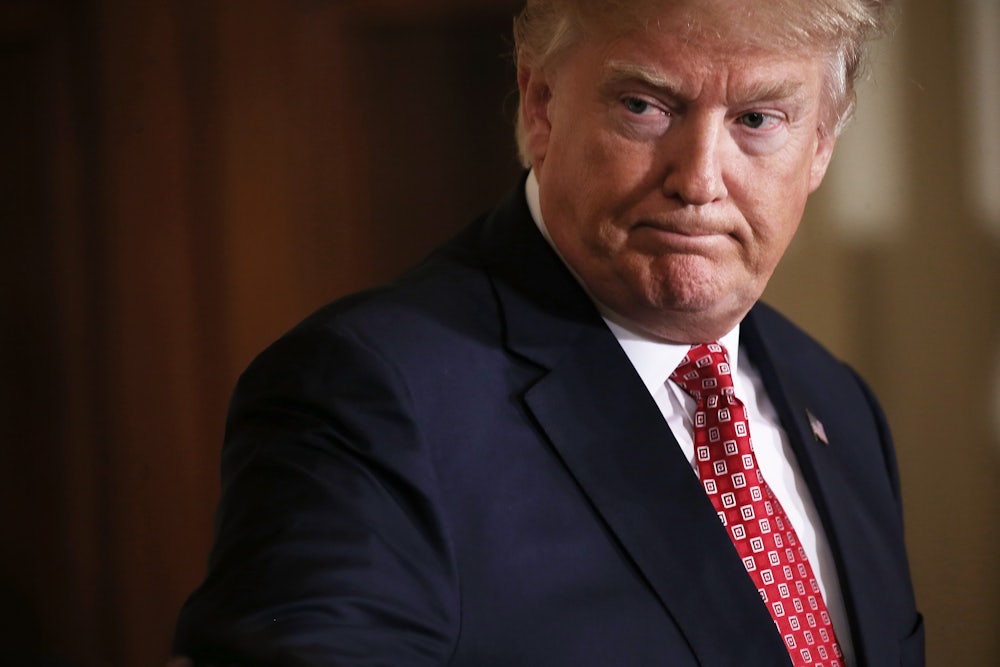Huddled with 10 senators on Thursday in a meeting that included former New Hampshire Senator Kelly Ayotte, Trump barely closed the door before continuing his conspiratorial talk about illegal ballots cast in last year’s presidential election.
Politico has the details:
The president claimed that he and Ayotte both would have been victorious in the Granite State if not for the “thousands” people who were “brought in on buses” from neighboring Massachusetts to “illegally” vote in New Hampshire.
According to one participant who described the meeting, “an uncomfortable silence” momentarily overtook the room.
Three months after his election—and almost a month into his presidency—he is still preoccupied with anxiety over his legitimacy, spouting paranoid delusions in closed-door meetings with the nation’s top elected officials. Trump’s insecurity has always been a driving force in his political life—it certainly affects how he works with those, like Ayotte, who have criticized him in the past—but Trump’s obsession with voter fraud is alarming because he sees it as a solution to the source of his insecurity, the widely held belief that he is not a legitimate president.
The unhinged Trump never goes away. https://t.co/1NvGtQ8PKO
— David Corn (@DavidCornDC) February 10, 2017
Trump will obsess over this for his entire presidency, no question.
— Jamelle Bouie (@jbouie) February 10, 2017
In addition to confirming that the president of the United States is clinging to conspiracy theories, Trump’s adamance about voter fraud undoubtedly will have concrete consequences for access to the ballot in America. He’s tasked Vice President Mike Pence with heading a commission on this imaginary problem, and a very real voter crackdown—possibly involving a national voter ID law—can’t be far behind.
